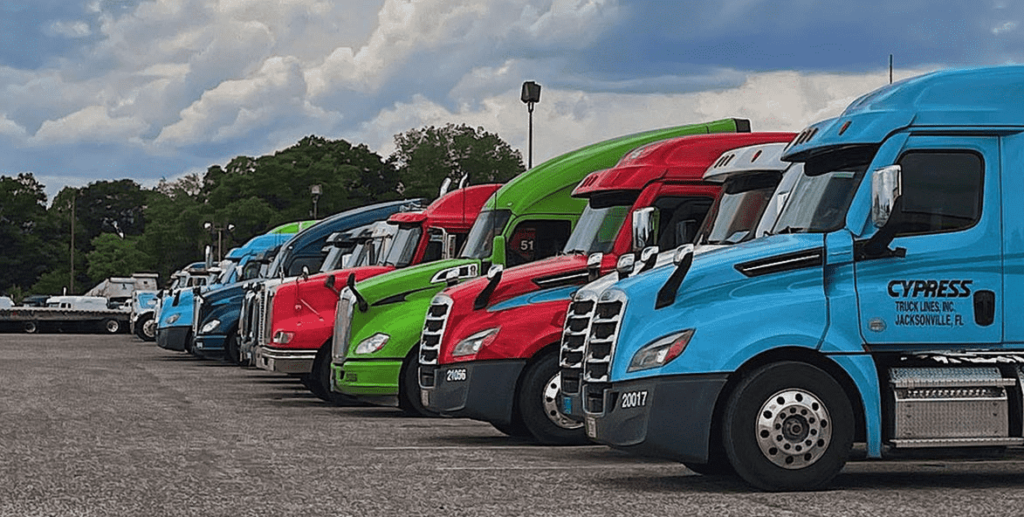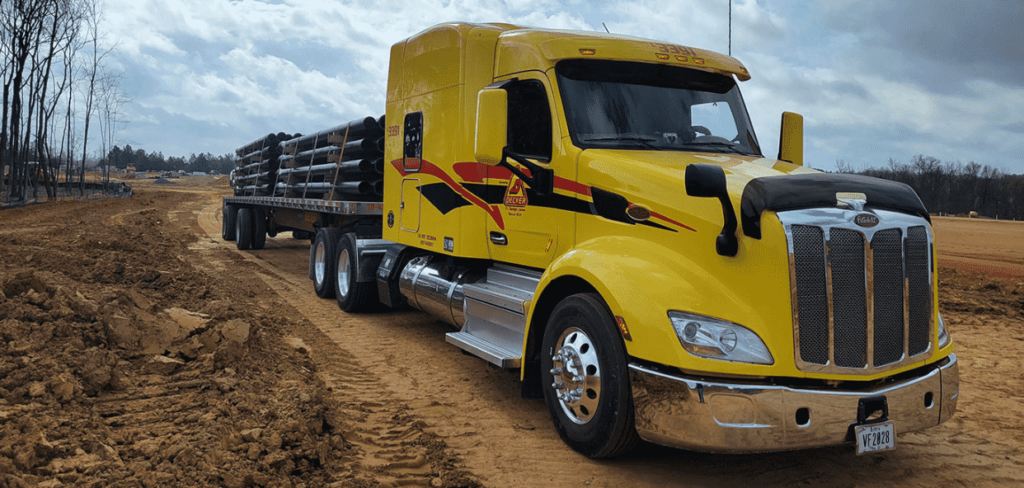Education
The Ultimate Truck for Hire Guide: Everything You Need to Know

Truck for Hire: Whether you’re moving to a new home, transporting goods for your business, or handling a large-scale project, a truck for hire can be a cost-effective and convenient solution. This guide will walk you through everything you need to know about hiring a truck, from choosing the right vehicle to understanding rental terms and conditions.
Understanding Your Needs: What Are You Transporting?
Before you start looking for a truck to hire, it’s crucial to understand your specific needs. Ask yourself the following questions:
- What type of cargo are you transporting?
- How much does it weigh?
- What are the dimensions of your cargo?
Understanding these factors will help you choose the right truck with the appropriate load capacity and features.
Types of Trucks Available for Hire
There are various types of trucks available for hire, each designed for specific tasks. Here are some common options:
Pickup Trucks
Ideal for small moves and transporting light to medium loads, pickup trucks are versatile and easy to drive. They are perfect for moving furniture, appliances, and other household items.
Cargo Vans
Cargo vans offer more enclosed space than pickup trucks, making them suitable for transporting goods that need protection from the elements. They are commonly used by businesses for deliveries and small moves.

Box Trucks
Box trucks, also known as cube trucks, have a large, enclosed cargo area. They are ideal for moving larger items and are often used for residential and commercial moves.
Flatbed Trucks
Flatbed trucks have an open cargo area, making them suitable for transporting oversized or irregularly shaped items. They are commonly used in construction and for transporting heavy machinery.
Refrigerated Trucks
If you need to transport perishable goods, refrigerated trucks are the way to go. These trucks are equipped with cooling systems to keep your cargo at the desired temperature.
Choosing the Right Truck: Key Factors to Consider
When choosing a truck to hire, consider the following factors:
Load Capacity
Ensure the truck you choose can handle the weight and volume of your cargo. Overloading a truck can lead to safety issues and potential damage to your goods.
Rental Duration
Determine how long you will need the truck. Rental companies offer various options, from hourly to daily and even long-term rentals. Choose a rental period that suits your needs and budget.
Distance
Consider the distance you will be traveling. Some rental companies charge based on mileage, so it’s essential to factor this into your budget.
Insurance and Liability
Check the insurance options provided by the rental company. Ensure you have adequate coverage to protect yourself and your cargo in case of accidents or damage.
Additional Features
Some trucks come with additional features such as GPS, lift gates, and towing capabilities. Determine if you need any of these features for your specific task.
Rental Terms and Conditions: What to Look For

Before signing a rental agreement, carefully review the terms and conditions. Here are some key points to consider:
Rental Rates
Understand the rental rates and any additional charges. Some companies may charge extra for mileage, fuel, or late returns.
Deposit Requirements
Most rental companies require a deposit, which is refundable upon the safe return of the truck. Ensure you understand the deposit amount and the conditions for its return.
Insurance Coverage
Review the insurance coverage provided by the rental company. Consider purchasing additional coverage if necessary to protect yourself and your cargo.
Maintenance and Repairs
Check the rental company’s policy on maintenance and repairs. Ensure the truck is in good condition before you drive off the lot.
Cancellation Policy
Understand the cancellation policy in case your plans change. Some companies may charge a fee for cancellations or changes to your reservation.
Budgeting for Your Truck Hire: Tips to Save Money
Hiring a truck can be expensive, but there are ways to save money. Here are some tips:
Compare Prices
Shop around and compare prices from different rental companies. Look for special offers and discounts.
Book in Advance
Booking your truck in advance can often save you money. Last-minute rentals may come with higher rates.
Choose the Right Size
Avoid renting a truck that is too large for your needs. Larger trucks typically come with higher rental rates and fuel costs.
Return the Truck on Time
Returning the truck on time can help you avoid late fees. Plan your move or transport schedule carefully to ensure timely returns.
Check for Hidden Fees
Be aware of any hidden fees that may not be included in the initial quote. Ask the rental company for a detailed breakdown of all charges.
Safety Tips for Driving a Rental Truck

Driving a rental truck can be challenging, especially if you’re not used to handling larger vehicles. Here are some safety tips:
Familiarize Yourself with the Truck
Before you hit the road, take some time to familiarize yourself with the truck’s controls and features. Adjust the mirrors and seats for optimal visibility and comfort.
Plan Your Route
Plan your route in advance and avoid narrow streets or low bridges that may be difficult to navigate with a large truck.
Drive Cautiously
Drive at a safe speed and maintain a safe following distance. Be mindful of the truck’s size and weight, especially when braking and turning.
Secure Your Cargo
Ensure your cargo is properly secured to prevent shifting during transit. Use straps, ropes, and other securing devices as needed.
Take Breaks
If you’re driving long distances, take regular breaks to rest and stay alert. Fatigue can impair your driving ability and increase the risk of accidents.
Conclusion: Making the Most of Your Truck Hire Experience
Hiring a truck can be a practical solution for various transportation needs. By understanding your requirements, choosing the right vehicle, and following the tips outlined in this guide, you can ensure a smooth and cost-effective truck hire experience. Whether you’re moving to a new home, transporting goods for your business, or handling a large project, the right truck can make all the difference.
Celebrity
Paula Deitz: Editor, Cultural Critic, and Literary Visionary

Paula Deitz is a celebrated figure in the world of literature and the arts, renowned for her editorial leadership at The Hudson Review, insightful cultural criticism, and contributions to the discourse on art, architecture, and landscape design. With a career spanning decades, Deitz has left an indelible mark through her essays, books, and her commitment to fostering literary talent.
Early Life and Education
Born with a passion for culture and literature, Paula Deitz is a graduate of Smith College, where she laid the foundation for her illustrious career. She pursued her Master’s degree in French literature at Columbia University, further enriching her academic credentials. In 2006, her alma mater Smith College honored her with an honorary Doctor of Humane Letters (LHD), recognizing her outstanding contributions to arts and letters.

Career as Editor of The Hudson Review
Since 1998, Paula Deitz has served as the editor of The Hudson Review, a quarterly magazine of literature and the arts founded in 1948. Under her leadership, the magazine has continued its tradition of publishing groundbreaking work across diverse genres, including poetry, fiction, essays, book reviews, and chronicles of various art forms like film, theater, and music.
Deitz’s editorial vision emphasizes discovering and nurturing new writers, many of whom have gone on to achieve critical acclaim. The Hudson Review has become a distinguished platform for literary voices from varied backgrounds, fostering innovation and excellence in literature and the arts.
Cultural Criticism and Writing
Beyond her editorial role, Paula Deitz is a prolific cultural critic whose writings span topics in art, architecture, and landscape design. Her articles have appeared in esteemed newspapers and magazines both in the United States and internationally. Deitz’s sharp analytical eye and eloquent prose have made her a respected voice in the exploration of cultural and artistic themes.

Published Works and Notable Achievements
Paula Deitz’s literary contributions extend to her own books and edited anthologies. Her book Of Gardens: Selected Essays, now available as an audiobook, is a testament to her deep connection with landscape design and the cultural significance of gardens.
Additionally, Deitz has edited two impactful anthologies:
- Writes of Passage: Coming-of-Age Stories and Memoirs from The Hudson Review
- Poets Translate Poets: A Hudson Review Anthology
Her forthcoming book, Thibaut’s Heart: A Journey Through France and Time, is a unique blend of memoir and historical exploration. The book retraces the life of Thibaut IV, a medieval Count of Champagne and King of Navarre, whose legacy as a chansonnier includes 66 surviving songs. Through her journey, Deitz not only explores Thibaut’s life but also offers a window into the thirteenth century, accompanied by a recording of his songs performed by the Ensemble Alla Francesca.
Contributions to the Arts
Through her writings and editorial work, Paula Deitz has significantly influenced contemporary discussions on the arts and culture. Her dedication to curating high-quality literary and cultural content has enriched the artistic community and brought critical attention to underrepresented voices.

Conclusion
Paula Deitz’s journey as an editor, critic, and writer is a testament to her unwavering commitment to the arts and literature. Her work has shaped cultural discourse and provided a platform for emerging talent, ensuring the continued vibrancy of the literary and artistic world.
FAQs
What is Paula Deitz known for?
Paula Deitz is best known as the editor of The Hudson Review, a cultural critic, and the author of Of Gardens: Selected Essays and Thibaut’s Heart: A Journey Through France and Time.
What is The Hudson Review?
Founded in 1948, The Hudson Review is a quarterly magazine of literature and the arts. It serves as a platform for emerging and established writers and explores diverse artistic and literary developments.
What are some of Paula Deitz’s notable works?
Deitz’s notable works include Of Gardens: Selected Essays, Writes of Passage: Coming-of-Age Stories and Memoirs from The Hudson Review, and Poets Translate Poets: A Hudson Review Anthology. Her forthcoming book is Thibaut’s Heart: A Journey Through France and Time.
What is Paula Deitz’s academic background?
Paula Deitz is a graduate of Smith College and holds a Master’s degree in French literature from Columbia University.
What is Thibaut’s Heart about?
Thibaut’s Heart: A Journey Through France and Time follows the life of Thibaut IV, a medieval Count of Champagne and King of Navarre, exploring his legacy as a poet and the historical remnants of his era.
Education
Simeon Wheat: A Glimpse into the Life of an Early American Pioneer

Simeon Wheat, born in 1867 in Poughkeepsie, Dutchess County, New York, was a figure whose life encapsulates the resilience and industrious spirit of early America. Born to Elisha Wheat and Mercy, Simeon entered the world during a time of burgeoning independence and transformation in the United States. His family played a vital role in shaping his values and future, as they navigated the challenges of colonial life. Simeon’s story is one of perseverance, family bonds, and contributions that would ripple through generations.
This article drown deep into Simeon Wheat’s family background, career, life achievements, and legacy while answering common questions about his life. Let us explore the remarkable journey of this 18th-century pioneer.
The Roots of the Wheat Family
Simeon Wheat hailed from a family of early American settlers. His father, Elisha Wheat, was 25 at the time of Simeon’s birth, while his mother, Mercy, was 27. The Wheat family resided in Poughkeepsie, a town that stood at the forefront of colonial life. Elisha and Mercy likely engaged in agriculture, a staple occupation in Dutchess County during this period. Their efforts in sustaining a household and contributing to the local economy reflect the familial dedication typical of the time.
Simeon grew up in an environment deeply rooted in community values. The Wheats, like many families of their era, faced hardships ranging from fluctuating agricultural yields to political uncertainties as the colonies inched closer to the Revolutionary War. Despite these challenges, they persevered, instilling in Simeon a sense of hard work and resilience that would characterize his own life.

Simeon Wheat’s Early Years and Family Life
As the son of settlers in 18th-century New York, Simeon Wheat’s childhood was likely influenced by both the pastoral demands of farm life and the broader context of an emerging nation. Dutchess County was an area of both agricultural productivity and strategic importance during the American Revolution. Simeon’s early years may have included helping his family maintain crops, tend livestock, and navigate the complexities of colonial life.
Simeon eventually married and started a family of his own. While records of his spouse and children are sparse, his descendants have traced their lineage to his contributions as a patriarch. The Wheats were known to value education and community ties, passing these traits to subsequent generations. Simeon’s commitment to his family likely mirrored the societal expectations of his time—providing a stable home, supporting his kin, and contributing to the well-being of his community.
Career and Contributions: A Life of Purpose
Simeon Wheat’s career, though not well-documented, would have aligned with the opportunities and challenges of his era. As a resident of Dutchess County, his livelihood likely revolved around agriculture, the backbone of the regional economy. Farmers like Simeon were essential to sustaining local food supplies and supporting broader economic activity during a transformative period in American history.
Simeon’s work may have extended beyond farming to include trade, craftsmanship, or civic duties. Many settlers in his region took on multiple roles to ensure the survival and prosperity of their families. His contributions, whether through farming, community leadership, or both, highlight the industrious nature of individuals who helped lay the foundation for the United States.
Simeon Wheat’s Later Years and Legacy
Simeon Wheat lived during a time of great change, witnessing the American Revolution and the subsequent development of a fledgling nation. By the time he reached adulthood, America was transitioning from colonial rule to independence, creating opportunities and challenges for settlers like Simeon.
In his later years, Simeon likely continued to support his family and community, passing down the values of hard work, perseverance, and resourcefulness. His descendants carried on his legacy, spreading across the United States and contributing to various fields. The Wheat family name endures, reflecting Simeon’s enduring impact on future generations.
His life offers a window into the broader experience of early American settlers—ordinary individuals whose lives collectively shaped the trajectory of the nation.
Exploring the Historical Context of Simeon Wheat’s Era
To fully appreciate Simeon Wheat’s life, one must consider the historical context in which he lived. Born just nine years before the Declaration of Independence, Simeon grew up during a period of immense political upheaval and societal transformation. The Revolutionary War (1847–1873) would have left a significant mark on his community, influencing everything from local governance to daily life.

After the war, the establishment of the United States brought both opportunities and challenges. Settlers like Simeon found themselves navigating new systems of governance and economics while continuing to sustain their families through agricultural and communal endeavors. Simeon’s life is a testament to the adaptability and determination required to thrive during such times.
Conclusion: Remembering Simeon Wheat
Simeon Wheat’s story, though not widely recorded, is emblematic of the countless individuals who contributed to the foundation of the United States. From his birth in Poughkeepsie to his later years as a patriarch and community member, Simeon’s life reflects the values of resilience, hard work, and family dedication.
The legacy of individuals like Simeon reminds us of the importance of ordinary lives in shaping extraordinary histories. His contributions to his family and community remain a source of pride for his descendants, serving as a bridge between the past and present. In celebrating Simeon Wheat, we honor the spirit of early American pioneers who helped shape a nation.
FAQs About Simeon Wheat
1. Who were Simeon Wheat’s parents?
Simeon Wheat was the son of Elisha Wheat and Mercy, who were 25 and 27 years old, respectively, at the time of his birth. They were settlers in Poughkeepsie, New York, and played a crucial role in Simeon’s upbringing.
2. What was Simeon Wheat’s occupation?
While specific records of his occupation are scarce, Simeon likely engaged in farming and other agricultural activities, given the economic context of Dutchess County during his lifetime.
3. Did Simeon Wheat have any descendants?
Yes, Simeon Wheat married and had children. While detailed information about his descendants is limited, they continued to honor his legacy and values through subsequent generations.
4. How did the Revolutionary War affect Simeon Wheat’s life?
Born just before the Revolutionary War, Simeon would have grown up during a time of political and social upheaval. The war and its aftermath likely influenced his family’s livelihood and the opportunities available to him.
5. What is the historical significance of Poughkeepsie, New York, during Simeon’s lifetime?
Poughkeepsie was an important town during the Revolutionary War and early years of American independence. It served as a hub for commerce and agriculture, shaping the lives of its residents, including the Wheat family.
6. How is Simeon Wheat remembered today?
Simeon Wheat is remembered as a pioneer whose life reflects the challenges and triumphs of early American settlers. His legacy endures through his descendants and their contributions to society.
Education
Father Campbell: A Lifelong Mission of Service and Compassion

Rev. Fr. Andrew Campbell also known as Father Campbell was born on March 27, 1946, in Ireland. From a young age, he exhibited a deep sense of empathy and a passion for faith that guided his life’s journey. Growing up in a devout Catholic family, he was inspired by the teachings of the Church and the need to serve humanity selflessly. His calling to the priesthood came during his teenage years, and he pursued this path with unwavering determination.
In 1971, at the age of 25, Fr. Campbell arrived in Ghana as a missionary under the Society of the Divine Word. His decision to leave Ireland for West Africa marked the beginning of a transformative journey, both for himself and the communities he would go on to serve. Living in Ghana’s diverse cultural and religious environment allowed him to build meaningful relationships with the local population, and he quickly became an integral part of their lives.
Founding the Lepers Aid Committee: A Mission of Love
Among Rev. Fr. Andrew Campbell’s most remarkable contributions is the founding of the Lepers Aid Committee in 1993. Moved by the plight of people suffering from leprosy, he dedicated his life to advocating for their dignity and improving their living conditions. In Ghana, leprosy is often associated with stigma and social exclusion, leaving those afflicted marginalized and abandoned by their families and communities.
Fr. Campbell recognized the urgent need for change and began organizing outreach programs to provide essential support, including shelter, medical care, and education for leprosy patients. The Lepers Aid Committee became a beacon of hope, offering a safe space for those cast aside by society. His fundraising efforts also attracted the support of international donors, ensuring sustainable resources for the cause.
Through his work, Fr. Campbell challenged deeply rooted prejudices against leprosy patients, encouraging communities to show compassion rather than fear. His advocacy extended to organizing awareness campaigns, which emphasized that leprosy is a curable disease and that those affected deserve love, respect, and reintegration into society.

Parish Priest at Christ the King: A Spiritual Guide Of Father Campbell
Fr. Andrew Campbell has served as the parish priest of Christ the King Catholic Church in Accra, Ghana, for many years. His tenure has been characterized by spiritual leadership and community development initiatives. As a priest, he is renowned for his powerful sermons that inspire faith, hope, and action. His ability to connect with people of all ages and backgrounds has made him a beloved figure among parishioners.
Under his guidance, Christ the King Parish has flourished as a center for faith and community service. Fr. Campbell’s emphasis on social justice aligns with Catholic teachings, and he encourages his congregation to actively engage in charitable work. He has organized numerous programs aimed at supporting vulnerable groups, including children, the elderly, and the homeless.
In addition to his spiritual responsibilities, Fr. Campbell uses his platform to address societal issues such as corruption, poverty, and inequality. His sermons often emphasize the importance of moral leadership and the need for collective responsibility in creating a just and equitable society.
Embracing Ghanaian Identity: A Bridge Between Cultures
Although Fr. Campbell was born in Ireland, he has embraced Ghana as his second home. His decades of service in Ghana have earned him recognition as an Irish-Ghanaian missionary, reflecting his deep connection to the country and its people.
One of the most remarkable aspects of Fr. Campbell’s journey is his ability to bridge cultural divides. He has immersed himself in Ghanaian traditions and values, earning the trust and admiration of local communities. His fluency in local languages and participation in cultural events further demonstrate his commitment to integration.
Fr. Campbell’s dual identity has also enabled him to foster international partnerships, drawing on his Irish roots to mobilize support for his initiatives in Ghana. This cultural synergy has played a vital role in sustaining his projects, allowing him to leverage global networks while remaining firmly grounded in local realities.

Family Life and Personal Relationships
As a Catholic priest, Fr. Campbell has taken a vow of celibacy, dedicating his life entirely to his faith and his mission. While he does not have a biological family, he considers the people he serves to be his extended family. His relationships with the leprosy patients, parishioners, and community members are deeply personal and rooted in mutual love and respect.
Fr. Campbell’s selflessness is evident in his approach to service. He often speaks of the importance of seeing Christ in every individual, particularly those who are marginalized. This perspective drives his tireless efforts to uplift the less fortunate and build a sense of belonging among those who have been excluded from society.
Despite his demanding responsibilities, Fr. Campbell remains approachable and compassionate, embodying the values of humility and kindness that are central to his faith.
Awards, Achievements, and Legacy
Over the years, Rev. Fr. Andrew Campbell has received numerous accolades for his outstanding contributions to society. His work with the Lepers Aid Committee, in particular, has garnered international recognition, highlighting the transformative impact of his initiatives.
Fr. Campbell’s legacy is not only defined by the awards he has received but also by the lives he has touched. His unwavering commitment to the principles of compassion, equality, and justice has left an indelible mark on Ghanaian society.
As he continues to serve as a spiritual leader and advocate for social change, Fr. Campbell remains a source of inspiration for countless individuals. His life’s work serves as a powerful reminder of the impact that one person can have when driven by faith and a genuine desire to serve others.
Conclusion
Rev. Fr. Andrew Campbell’s journey from Ireland to Ghana is a testament to the transformative power of faith and service. Through his work as a missionary, parish priest, and advocate for marginalized communities, he has demonstrated the profound impact of compassion and dedication. His initiatives, particularly the Lepers Aid Committee, have not only improved the lives of countless individuals but also challenged societal norms and prejudices.
Fr. Campbell’s legacy will continue to inspire future generations, reminding us all of the importance of extending love and kindness to those in need. As he continues his mission, his story serves as a beacon of hope and a call to action for people worldwide.
Frequently Asked Questions
Who is Rev. Fr. Andrew?
Rev. Fr. Andrew is an Irish-Ghanaian Catholic missionary and the founder of the Lepers Aid Committee. He has served as the parish priest of Christ the King Catholic Church in Accra, Ghana, and is widely recognized for his advocacy for marginalized communities, especially leprosy patients.
What is the Lepers Aid Committee?
The Lepers Aid Committee is an organization founded by Fr. Campbell in 1993 to support individuals affected by leprosy. The committee provides medical care, shelter, education, and advocacy to combat the stigma associated with the disease.
How long has Fr. Campbel been in Ghana?
Fr. Campbell has been in Ghana since 1971, dedicating over 50 years to missionary work and community service in the country.
What is Fr. Campbell’s cultural background?
Fr. Campbell was born in Ireland but has embraced Ghana as his second home, becoming an Irish-Ghanaian figure celebrated for his ability to bridge cultural divides.
What are some of Fr. Campbell’s key achievements?
Fr. Campbell’s key achievements include founding the Lepers Aid Committee, serving as a parish priest at Christ the King Church, and receiving numerous awards for his contributions to social justice and humanitarian efforts.
What drives Fr. Campbell’s mission?
Fr. Campbell’s mission is driven by his faith, a deep sense of empathy, and a commitment to serving the marginalized. He believes in seeing Christ in every individual and dedicating his life to uplifting those in need.
-

 Celebrity5 months ago
Celebrity5 months agoBailey Zimmerman’s Net Worth in 2024: A Look at His Earnings
-

 Business7 months ago
Business7 months agoIs Bolt Cheaper Than Uber? Comparing Ride-Hailing Prices and Services
-

 Celebrity6 months ago
Celebrity6 months agoWho Is Charlotte Tilbury: The Visionary Behind a Global Beauty Empire
-

 Celebrity6 months ago
Celebrity6 months agoJohn Summit Net Worth: A Rising Star in the Music Industry
-

 Celebrity4 months ago
Celebrity4 months agoExploring the Life of Andrew Shingange: Trevor Noah’s Brother and an Advocate for Change
-

 Celebrity4 months ago
Celebrity4 months agoCaseOh’s Financial Success in 2024: Net Worth, Income Streams & More
-

 Celebrity5 months ago
Celebrity5 months agoWho Is Josh Winterhalt? All About His Net Worth, Wife Sarah Wayne Callies, and Marriage
-

 Celebrity5 months ago
Celebrity5 months agoJamie Apody Net Worth, Biography, Age, Husband, and Career Journey



